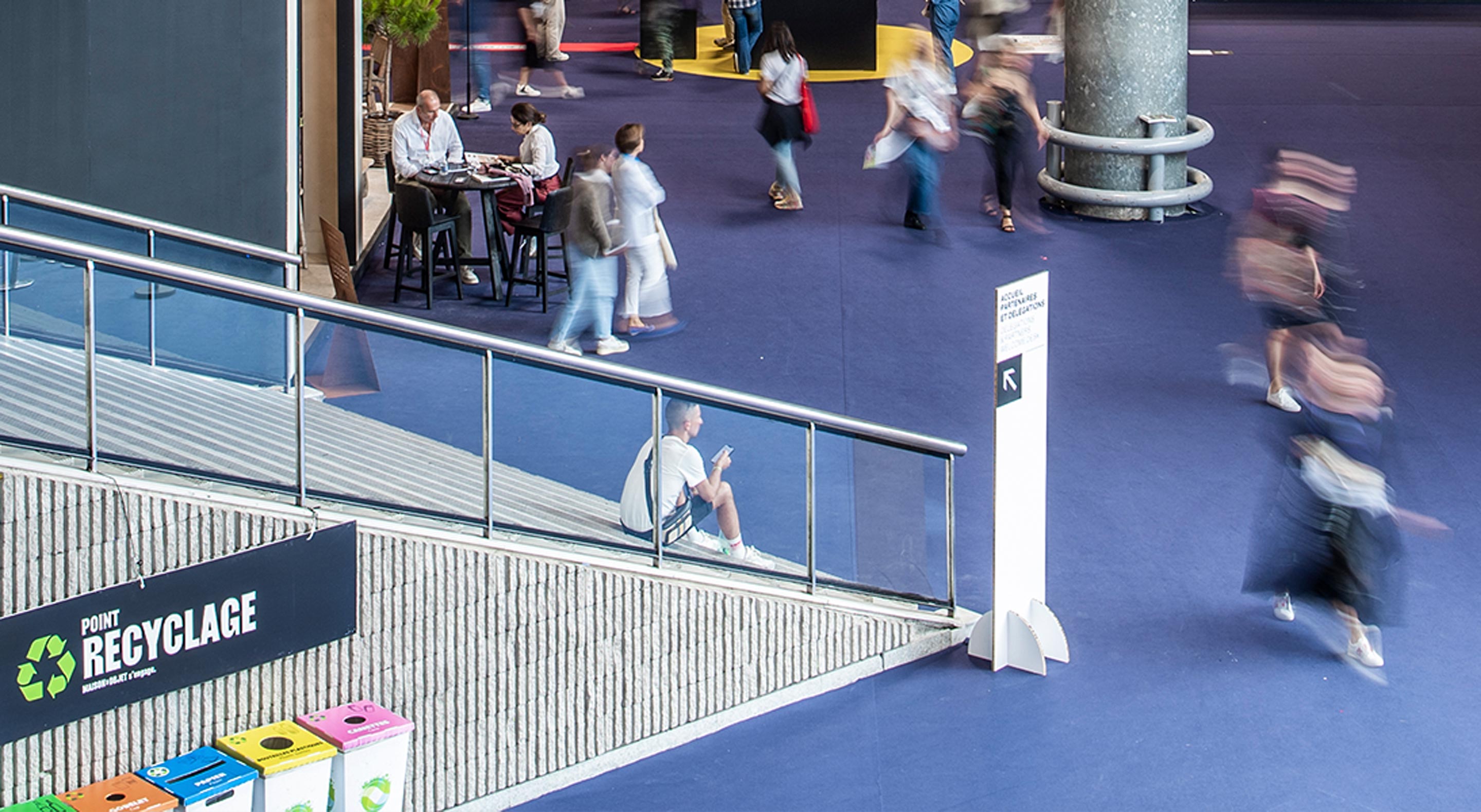Maison&Objet commitments for a greener fair
Published on 1 December 2023
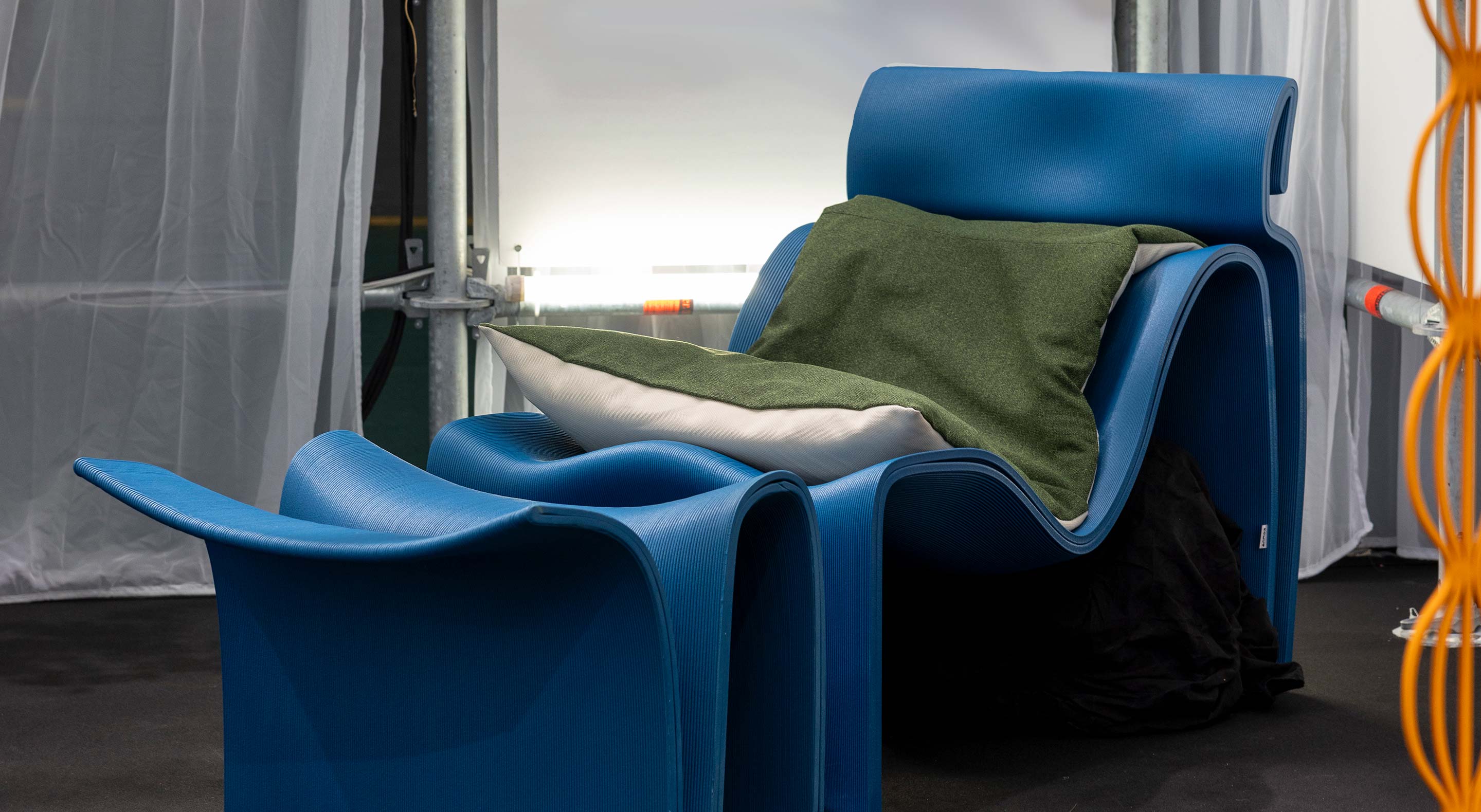
The fair’s environmental responsibility is more comprehensive than an ever more virtuous event management. While amplifying the actions of its partners and raising awareness among market players, Maison&Objet also works towards activating some crucial synergies.
WATER THE YOUNG SHOOTS
Komut Studio manufactures cheerfully colourful and 100% recyclable furniture from 100% recycled plastic packaging. Repulp stands out for the revaluation of citrus peels and other waste from the fruit juice industry transformed into cups and soon into small furniture. Ostrea Design's raw material is waste linked to oyster farming. These three recent start-ups have a lot in common: they are less than three years old into the business and have already been selected by the jury of the 4th ‘Future on Stage’ call for projects by Maison&Objet. Their creations have all included circularity at the core of their production method. An approach the ‘Future on Stage’ springboard regularly highlights.
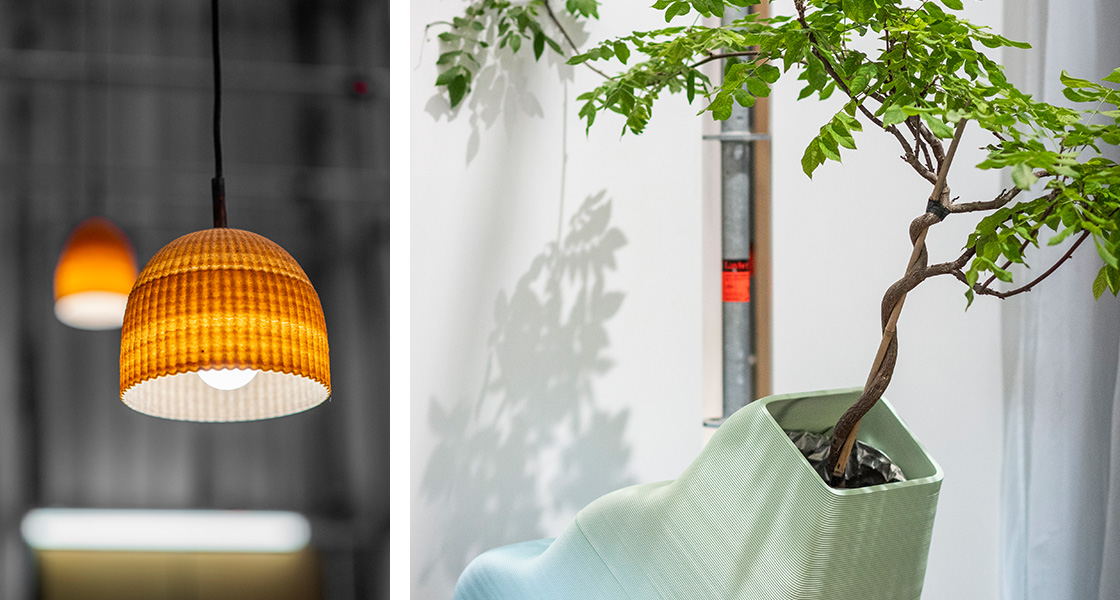
Visibility, public exposure, commercial contacts: Yann Santerre, founder of Gwilen and winner of a previous edition, welcomes this unique opportunity and the echo chamber that is its communication. Gwilen transforms marine sediments into design, architecture, and construction materials. The opportunity the brand took to participate in the fair kept its promises and produced some positive side effects. “We were able to discuss ideas with the two other winning brands and share the challenges we met, which were quite similar. We have had nothing but nice feedback from people inspired by our approach and delighted to see that initiatives in favour of the environment were beginning to emerge”, says Santerre.
SUSTAINABILITY-SUPERSTAR!
On the sustainable route, more seasoned but equally remarkable brands are identified. Greek-inspired candles made with respect for the environment from Waks Candles, household products by Fer à Cheval, Swiss brand T'ru’s bed linen or wooden floorboards from sustainably-managed forests with the brand Chêne de l'Est: the offer is as eclectic as highly recommendable.
Laurence Carr, founder of the eponymous design studio, is recognised and sought after for her expertise in developing sustainable environments in France and the United States. She chairs the professional jury with the same commitment, validating this fair’s segment exhibitors. “It’s all inspiring and exciting to see the growing interest in adhering to sustainable standards and certifications,” Carr explains. Waste reduction and carbon footprint are the most important criteria. “We also consider ethical sourcing, the life cycle of a product, all the processes used in its creation.” Twelve years after the launch of Le Fil Vert (The Green Thread), its first version, the exhibition course now considers recent developments. “We are seeing an increasing number of AI technological elements used very creatively and efficiently,” Carr observes, echoing the “Tech Eden” theme of Maison&Objet’s upcoming edition.
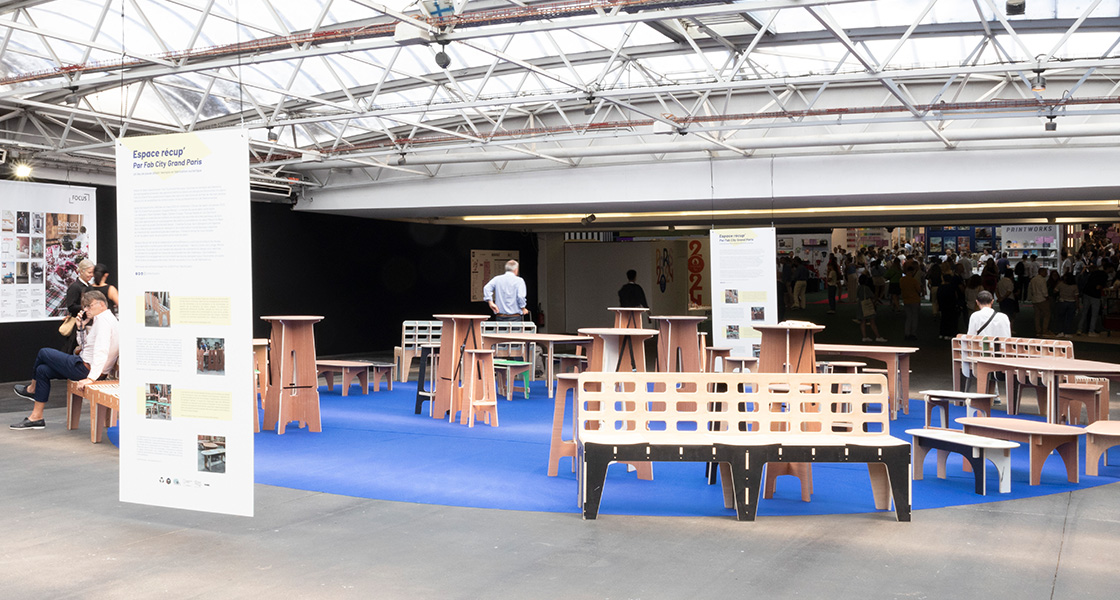
SUPPORTING PRACTISE CHANGES
For three editions, Les Canaux has installed furniture produced by the Alumni of its “Booster of circular furniture” program launched in 2019 with its partner Valdélia at the show's heart. For 18-month sessions, the association supports around fifteen small and large businesses in their projects linked to the circular economy, from design to marketing. The initiative is part of a broader perspective of structuring these alternative productions in the French furniture industry.
“We only work from deposits of materials available in the form of flow and not in stock, regular post-consumer or post-production waste over time to produce in series. This main issue is necessary to have a real impact,” argues Léa Collette-Germier, Circular Economy Project Manager of this association launched in 2017 by the City of Paris.
With this objective in mind, the partnership with the show was evident. In January, rest areas will be entirely furnished with furniture from the program. The new “collection” composed of 16 pieces will be deployed over 65 sqm in a scenography highlighting the approach. “I will welcome companies with two hats,” continues Collette-Germier, “that of a salesperson for companies that want to provide themselves with eco-furniture, and that of a consultant for brands and companies that would like to integrate the next Booster program, which will be available to join at the end of 2024.” Thanks to its network, the association can connect companies with good market opportunities with major public or private contractors, such as the Paris 2024 Olympic Committee.
REUSE MADE SIMPLE
Forty-two tonnes is the waste-weight of curtains, plywood, wood and all scrap materials from assembling or dismantling a show such as Maison&Objet. Recovered at the end of the last edition from service providers and 500 exhibitors, this volume does not include carpets or other waste already taken into a recycling circuit.
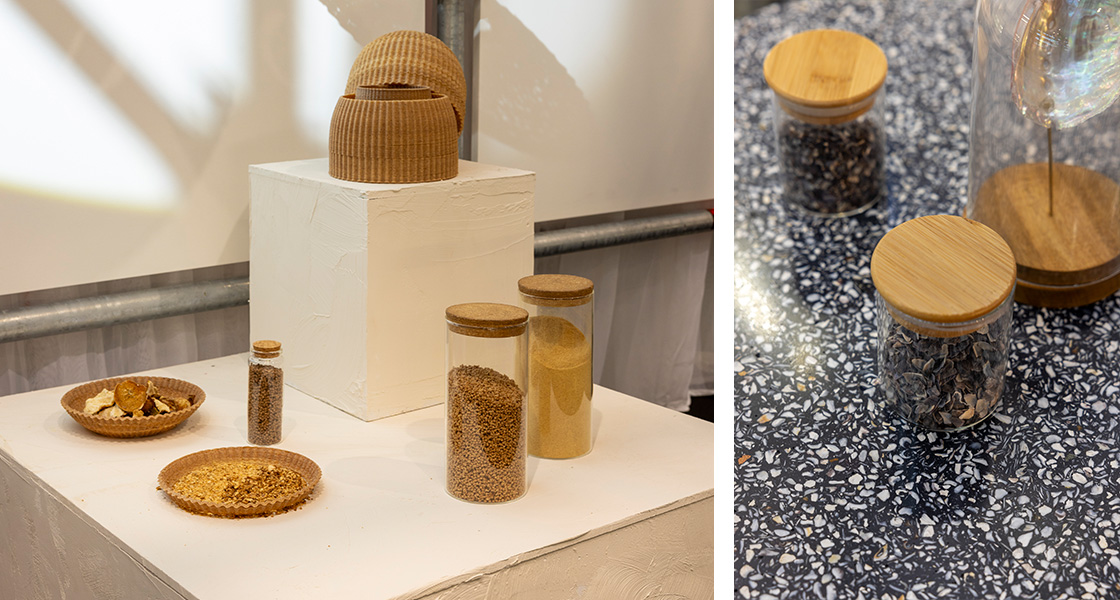
“It was quite a good surprise for a first experiment,” rejoices Shanti Brun, Technical and Logistics Manager. To carry out this operation, which will now be made regular, Maison&Objet calls on a specialised service provider. Re’up’s “Recycling Rangers” intervened even before the show’s opening to raise awareness among the exhibitors and booth managers. The latter then try to dismantle their stand to reuse the materials. “No one wants to throw things away. We have examples of exhibitors contacting us spontaneously,” continues Shanti Brun. Viparis, the managing group of the Porte de Versailles Exhibition Centre, then provides storage space. Re'up can thus create a logistics platform and organise the collection of materials through actors from the solidarity reuse sectors – i.e. non-profits, schools, artists, etc. – which will give them a second life. In January, alongside Les Canaux, three other organisations will demonstrate the relevance of upcycling by presenting their work at the fair: Emmaüs Défi, Fab City and Re’up.
All visitors can now adopt a more virtuous practise with the Made-in-France cardboard badge holders, provided to them without marking and thus reusable from one fair to another. It is a small gesture far from being a detail.
